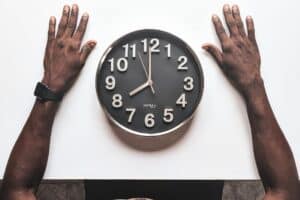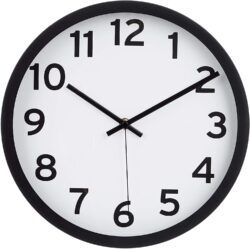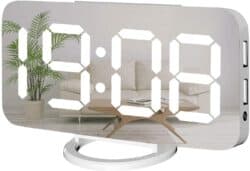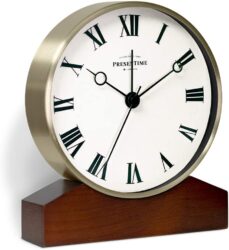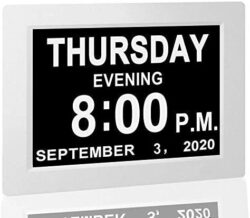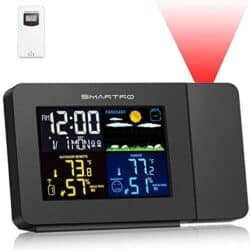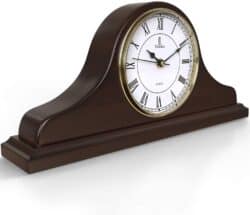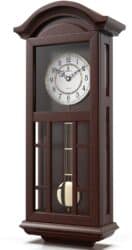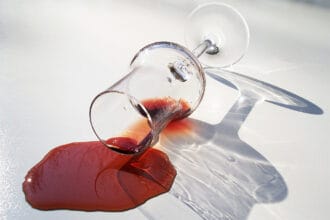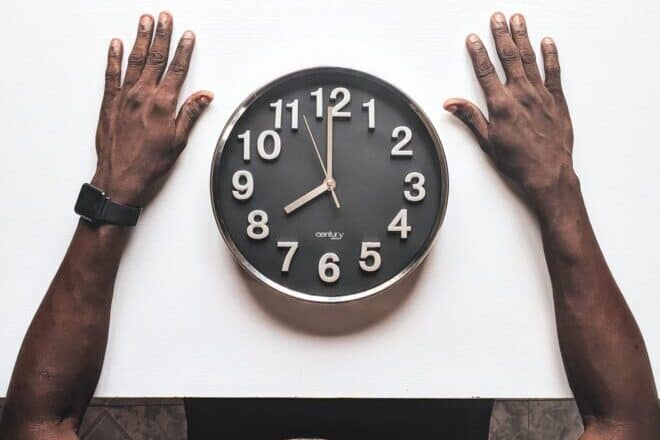
via: Unsplash / Oladimeji Ajegbile
If you're curious about the types of clocks you can use for your home, this list of the best timepieces can help you decide which to get.
I'm the resident home design expert here, so people really come to me for advice about decorating their spaces. That's why I know that you'll find the perfect timepiece in this useful list.
Let's go!
Contents
What Are Clocks (Exactly)?
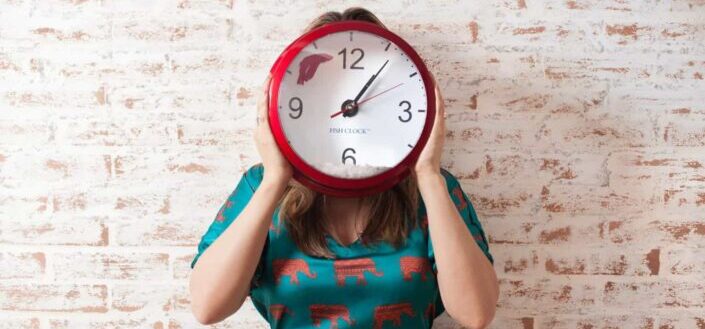
via: Unsplash / RODOLFO BARRETO
Clocks are devices used to measure and indicate time by the hours and minutes. They usually have three hands: one for the hours, minutes, and seconds. The clock face has numbers from 1 to 12, which indicate the hours, with 5 lines in between, which show the minutes.
One hand is assigned to each interval: seconds, minutes, and hours. They move at varied paces towards the right, hence the term "clockwise."
Brief History
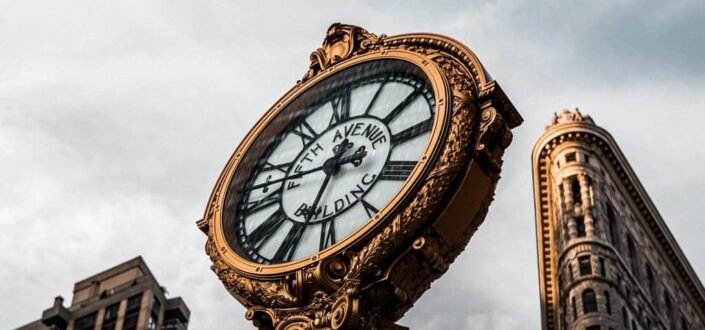
via: Unsplash / Trevor Bobyk
The English word "clock" replaced the Old English word daegmael meaning "day measure." The word "clock" comes from the French word cloche meaning bell. This entered the language around the 14th century, around the time when clocks started hitting the mainstream.
Since the start of civilization, humans have measured time in varied ways. We started from a sundial to a water clock and even a candle clock. We've since then moved on to hourglasses and, eventually, the mechanical clock. The modern-day use of a base-60 time system, a 60-minute, and 60-second increment clock. This dates back to ancient Sumeria in 2,000 B.C.
Importance

via: Unsplash / Elena Koycheva
Because we see clocks everywhere, we tend to forget how important they actually are in our lives. They help us form our routines and schedules throughout the day. They can help children learn the limitations of time by having a visual representation of time. They can help adults plan out activities and errands that need to be done in a certain amount of time.
Apart from these basic functions of time, we also have to be thankful for clocks because they can help us out in the scientific discoveries we have yet to make. So far, the presence of a super-accurate clock has allowed us to develop the system for the Internet and GPS. This clock is called the atomic clock. It measures the movement of atoms.
Clocks also play an important role in the economy. The entire economic world begins and ends its shift at particular times. All of these world markets and banks are linked to time. The shares of each company change their prices in a matter of minutes.
Without accurate time, we would not be able to run the economy the way we are doing now, despite all the technological advances made over the years.
Popular Types of Clocks Found Everywhere
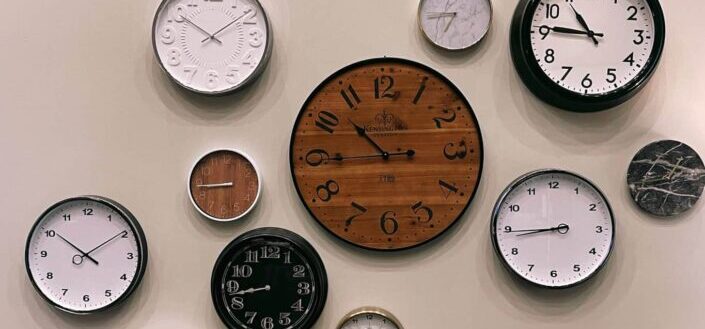
via: Unsplash / Jon Tyson
There are numerous clock types that you can find in any place. Each kind looks different and serves a unique purpose. Whether you're at home, in the office, or even outdoors, a clock always has a function. In this list, you'll find all the most common types of clocks all over the world.
1. Wall Clock
This is probably one of the most common clocks you can find. The wall clock is a typical and classic clock you hang on the wall, preferably at a good height for a good visual. It is usually hung in common areas, such as kitchens, dining areas, conference rooms, classrooms, banks, etc. This makes it convenient for people to tell time in public spaces.
2. Alarm Clock
This is the clock that a lot of us probably hate. There is an accurate time to wake up, but we don't want to acknowledge it most of the time. Luckily, the alarm clock is around to remind you that the minute hand can only go so many rotations before you need to get up for work. Alarm clocks usually sit on the bedside table within an arm's reach. Personally, I suggest getting one without a snooze button. After all, it's there to wake you up.
3. Tabletop clock
This clock usually sits on top of your office table at home or work. This is useful because it's an accessible way to see the time. When you're buried in your tasks, you sometimes forget to do other things like eating or drinking water. If you have a tabletop clock, it will remind you to take care of yourself, even if you've got a million things going on.
4. Audio Clock
In digital audio electronics, word clocks are clock signals used to synchronize other devices, such as digital audio tape machines and compact disc players. From a simple, portable CD player to a Pro Tools H.D. rig, every digital device has a word clock. Word clock is so named because it clocks each audio sample. Samples are represented in data words.
5. Projection Clock
A projection clock is a digital or analogue clock equipped with a projector that creates an enlarged image of the time onto a flat surface, usually the ceiling. These are commonly used in advertising and marketing. Companies projecting the time and their logo alongside it.
6. Mantel Clock
The mantel clock, also known as a shelf clock, is a small clock that is usually placed on shelves above the fireplace. If you're going for a vintage or antique look for your home, this antique clock can complete the aesthetic you want. If you're going to tie the look together a little more, get one of those classic grandfather clocks from an antique store.
7. Floor Clock
The most common floor clock is the grandfather clock. It's a tall, freestanding, weight-driven pendulum clock with the pendulum held inside the tower or waist of the case. Robert Hooke invented the anchor escape mechanism in 1968, and from this, the invention of the grandfather clock followed shortly after. This clock used to only have an hour hand, and the minute hand was added in the next few years.
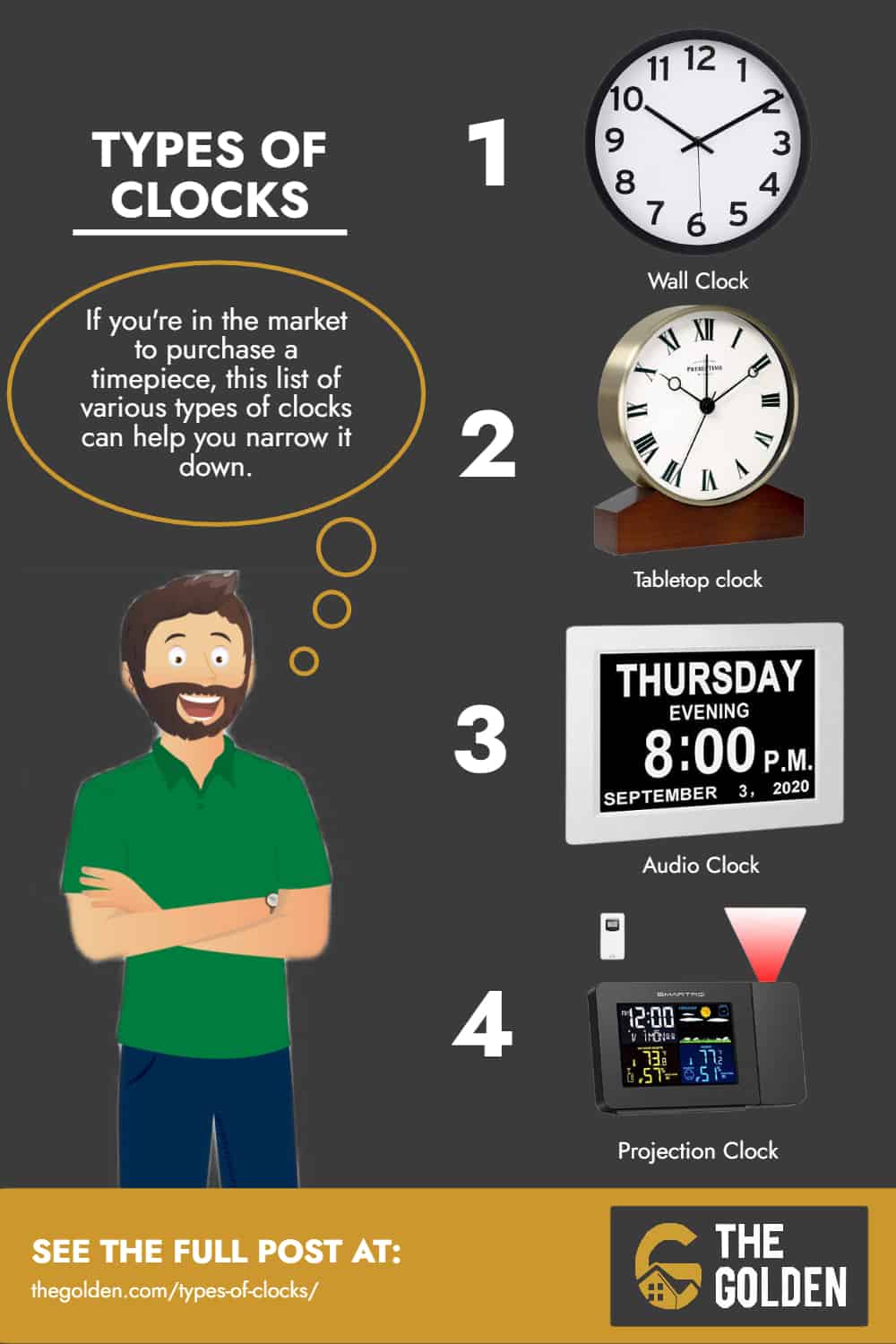
via: Golden
Share This Image On Your Site
Analog Versus Digital Clock: Pros and Cons
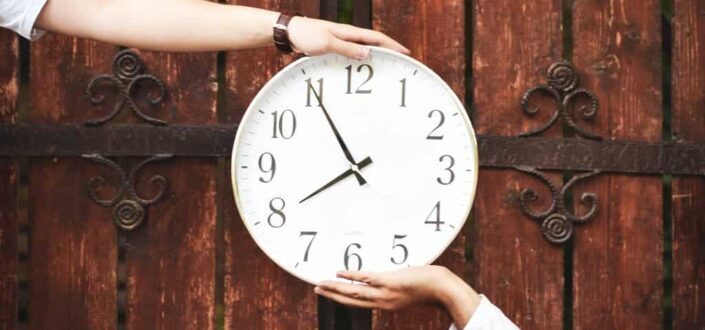
via: Unsplash / Danial Mesbahi
These two classifications of clocks represent our advances in technology over time. Analog clocks, or mechanical clocks, have the classic appearance of the clock. It has twelve numbers representing the hours, with lines representing the minutes.
On the other hand, the digital clock has no hands or lines. It shows only the time and is usually a battery-operated or electric clock.
Analog Clock
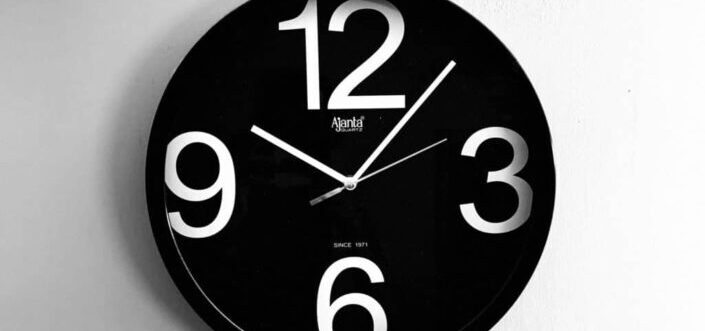
via: Unsplash / Akshar Dave 🪁
Pros
This is where it all started, right? The analog type is common across many clocks. One of which is the mechanical clock. An escapement is a mechanism that ticks in a steady rhythm, like the balance wheel on a watch or the pendulum in a vintage clock like a grandfather clock.
One of the pros of an analog clock is that it is a common type that almost anyone can decipher, even if they use roman numerals. Clocks such as the cuckoo clock, musical clock, anniversary clock, carriage clock, lighthouse clock, and pocket watch are all analog types. Analog clocks are also typically cheaper than digital clocks.
If you plan to buy some that can serve as an indoor clock, outdoor clock, room clock, etc., then this is your best bet. Another good thing about the analog clock is that it is essential in teaching children time and counting. The tactile clock is perfect for teaching kids to learn time because they can touch it, and it will capture their attention because of the colorful designs.
Cons
Even though the analog clock, or the quartz clock like it was so-called, is accurate, it is still flawed in some aspects. First, its visibility is limited. Take bracket clocks, for example. They're meant for people to read at a close distance, especially if it uses a roman numeral system.
If there are people across the room, and that is the only clock available, it would be difficult to read. Another thing about the analog clock is that its features are limited. It is not as advanced as digital clocks that have emergency alerts, countdown timers, and a lot more useful features.
Digital Clock
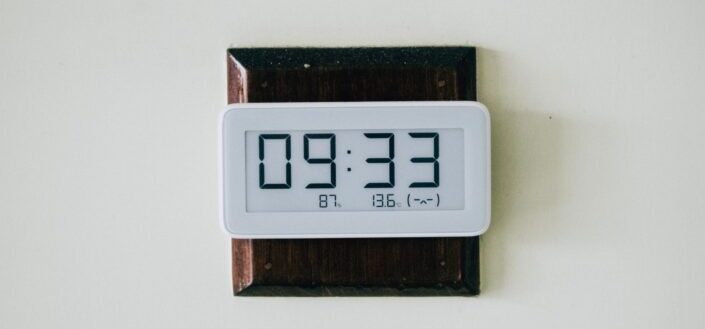
via: Unsplash / Macro.jr
Pros
The digital clock is the best thing you can possibly need in time-sensitive scenarios. It's easier to read than an analog clock, that's for sure. Plus, it also has many features that you don't get from an analog clock.
Take the auditory clock, for example. It reads the time aloud for you, and you can also give commands using voice recognition. Another digital clock that has unique features is the radio clock. It is automatically synchronized to a time code transmitted by a radio transmitter connected to a time standard such as an atomic clock.
The digital clock also offers good visibility for large spaces. If you're in a gym or auditorium, it will be easier to read the time from across the room. It's also easier to read the time when you're in a low-lit room. People need the exact time in an operating room or examination room, so the digital type is perfect for that.
Cons
If you're very particular about aesthetics, the digital clock won't be something you're into. The analog clock provides a more classic and timeless feel. It's the best choice if you're designing a space that's meant to have a certain look.
Another thing to consider when choosing between analog and digital is the price point. It's relatively more expensive than an analog clock. Some digital or electronic clocks are dependent on electricity to run. Sometimes, they will not be useful when the power is out.
Things To Keep In Mind When Buying A Timepiece
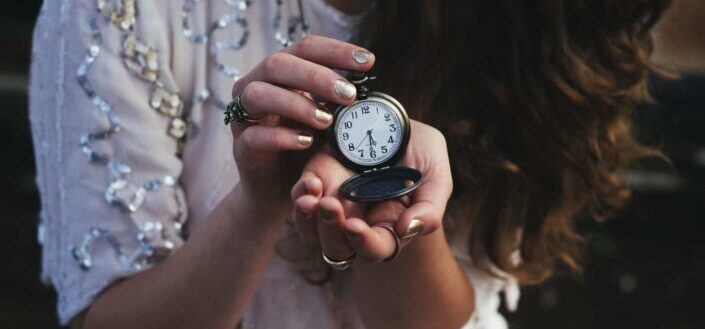
via: Unsplash / Rachael Crowe
There are tons of choices to pick from when you want to buy a clock. This may get too overwhelming for you. If there are some requirements you need, you won't be able to narrow down which one to choose. When you're considering your options on the timepieces to use, it's best to have a list of factors to think about.
1. Digital or analog? That is the question.
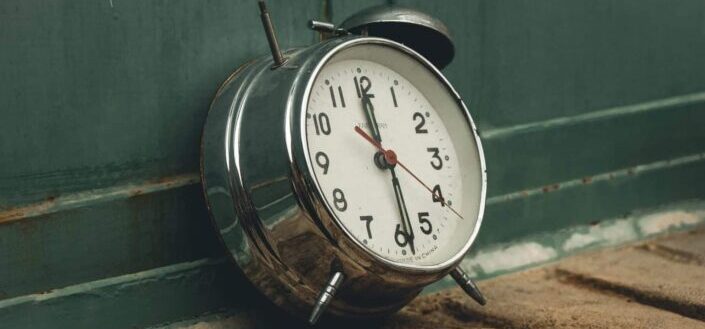
via: Unsplash / Arash Asghari
Based on all the info we've given about digital or analog clocks, you should now know which one you should get for your space. With all the kinds and features each choice offers, you need to consider all of these to choose the right one for your place.
2. How big do you want it?

via: Unsplash / Lucas Beck
Size is a major factor you should consider about the clock you're going to get. Is the clock you're thinking of getting big enough for your living room? Is it small enough for your desk? Is it tall enough to serve as a permanent accent piece?
Be cautious about the clock you're choosing because it has to be proportional to how big the place is because it may look out of place.
3. Can you hear that?
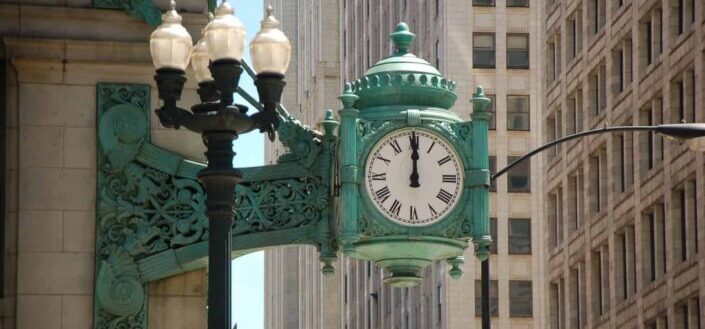
via: Unsplash / Atti Eldfjall
An important factor when picking a clock is the sound it makes and where you want to hear it. Do you want it to chime at certain times? Do you want it to be completely silent?
Typically, a musical clock would be better for common spaces like living rooms or kitchens. Keep it away from the bedroom because you'll probably be taking it down the first night you have it up.
5 Famous Timepieces Around The World Worth Your Time Seeing

via: Unsplash / Marwan Ahmed
Time is something that everyone needs and appreciates. In most countries, they have a significant timepiece that they are proud of. Some are in museums, city capitals, and any other famous tourist spots where people from all over the world come to see.
If you're planning a trip soon, check out our list of the most popular timepieces in various countries and make them part of your itinerary.
The Prague Astronomical Clock - Prague
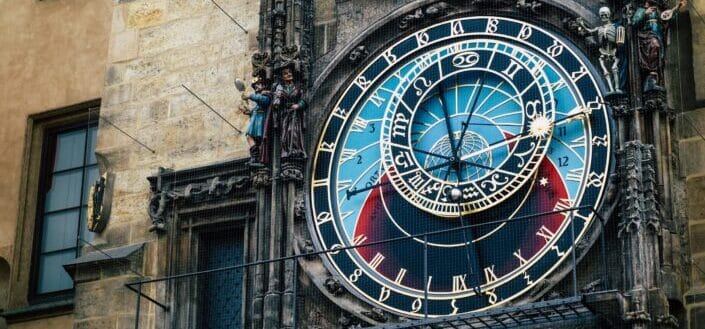
via: Unsplash / Jack Hunter
The Prague astronomical clock, also known as the Prague Orloj, is attached to the Old Town Hall in the capital of Prague. It was first installed in 1410, making it the third-oldest astronomical clock in the world. It is also the oldest clock that is still in operation.
The clock mechanism has three major components that make it "astronomical." First is the astronomical dial, which represents the position of the sun and moon in the sky. The second one is an hourly show of moving Apostle figures called "The Walk of the Apostles."
Last is the calendar dial with medallions. Want to know an interesting tidbit? According to local legend, the city will suffer if they neglect the clock.
A ghost that was supposedly mounted on the clock would nod its head in confirmation. Their only hope was represented by a boy born on New Year's night.
The Savior Tower - Moscow

via: Unsplash / Robby McCullough
The Savior Tower, or the Spasskaya Tower, is the main tower on the eastern wall of the Moscow Kremlin, overlooking the Red Square. It was initially named the Frolovskaya Tower, after the Church of Flor and Lavr. The tower is crowned by an illuminated ruby-red star, which replaced the double-headed Russian eagle in 1937, raising the tower's height to 71 meters.
Legends that the Spasskaya Tower had magical powers to protect the Kremlin from enemy invasions still surround the monument.
Big Ben - London

via: Unsplash / Heidi Fin
Who can forget Big Ben in London? "Big Ben" is the nickname for the Great Bell of the great clock at the north end of the Westminster Palace in London, England. This tower was designed in a neo-Gothic style.
It was completed in 1859, and it was the largest and most accurate four-faced striking and chiming clock in the world. It's 96 meters tall, and you need 334 steps to climb it. The tower is a British cultural icon recognized worldwide and is one of the most prominent symbols of the United Kingdom.
The Zytglogge Tower – Bern, Switzerland

via: Unsplash / Claudio Schwarz
The Zytglogge is a landmark medieval tower in Bern, Switzerland. It was built in the early 13th century and has served as a guard tower, prison, clock tower, center of urban life, and civic memorial for the city. This is an astronomical clock and is a UNESCO World Cultural Heritage Site.
Its internal layout has changed over time to reflect the tower's change of purpose from guard tower to city prison to the clock tower.
Makkah Royal Clock Tower Hotel – Mecca, Saudi Arabia

via: Unsplash / Miltiadis Fragkidis
The Abraj Al-Bait is a government-owned complex of seven skyscraper hotels in Mecca, Saudi Arabia. These towers are included in the King Abdulaziz Endowment Project that aims to modernize the city. It certainly helps their tourism, that's for sure.
The central hotel tower is the Makkah Clock Royal Tower. It has the world's largest clock face and is the third tallest building globally. Another amazing thing about this structure is that it contains the Clock Tower Museum, which occupies the tower's top four floors.
Frequently Asked Questions

via: Unsplash / Colin Lloyd
Do you still have some unanswered questions about clocks and their various types? Here are a few frequently asked questions that may help clear up a few things:
Why do clocks need to be wound?
All machines, including clocks, need energy to work. The energy is usually stored in a weight or spring. When it is wound, energy is transferred from our muscles and into the driving weight (as it moves up against the force of gravity) or the mainspring (as it tightens up). This energy is released into the timekeeper as the weight drops, or the mainspring unwinds.
Are watches and clocks the same?
They are the same in terms of purpose because both can tell the time. However, watches are usually strapped onto your body, whether on your waist or belt loops (like a pocket watch!). Clocks, as we have established, have a lot of types, but they are usually stationed at desks, walls, and the like.
Which type of clock is the most accurate?
Atomic clocks are the most precise timepieces in the world. These complex instruments use lasers to measure the vibrations of atoms, which oscillate at a constant frequency, like many microscopic pendulums swinging in sync. The best atomic clocks in the world keep time with such precision that, if they had been running since the beginning of the universe, they would only be off by about half a second today.
How do you choose the best type of clock for your house?
Consider the space, color, and size of the clock and the wall behind it. They all have to match in these aspects to tie together well. You also have to consider if it's visible from where people will be looking.
If you're putting a clock in the living room, make sure it's visible from the couch or seats. If you're placing a clock in the kitchen, put it somewhere accessible to the person cooking.
More Awesome Articles
Do you need some more awesome articles about lifestyles you should try? Here they are:
- Are you shopping for your new home? On our site here, you'll find various types of beer glasses that you may need to check out before you check out your cart.
- If you're looking to add some fresh and new plants to your garden, check out these types of ferns that may give you a good idea.
- When you're starting out as a plant enthusiast, you'll most likely start with succulents. So, it's good for you to check out these types of succulents to see which ones you're going to like.
Conclusion
Now, you're all set with the types of clocks you may possibly consider for your home or office.
If you know anyone in the market for a good timepiece, it would be good to send them this article. You won't only be helping them to narrow down their choices, but you will also share with them some new pieces of knowledge that they probably never knew before. You might even persuade them to purchase clocks they never considered before.
Good luck!


